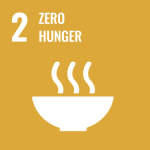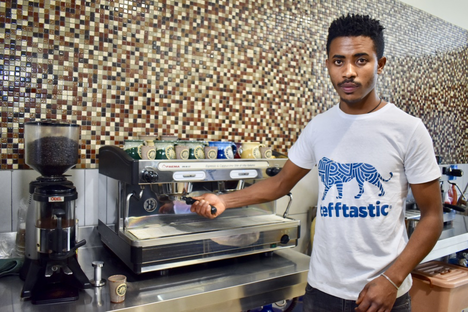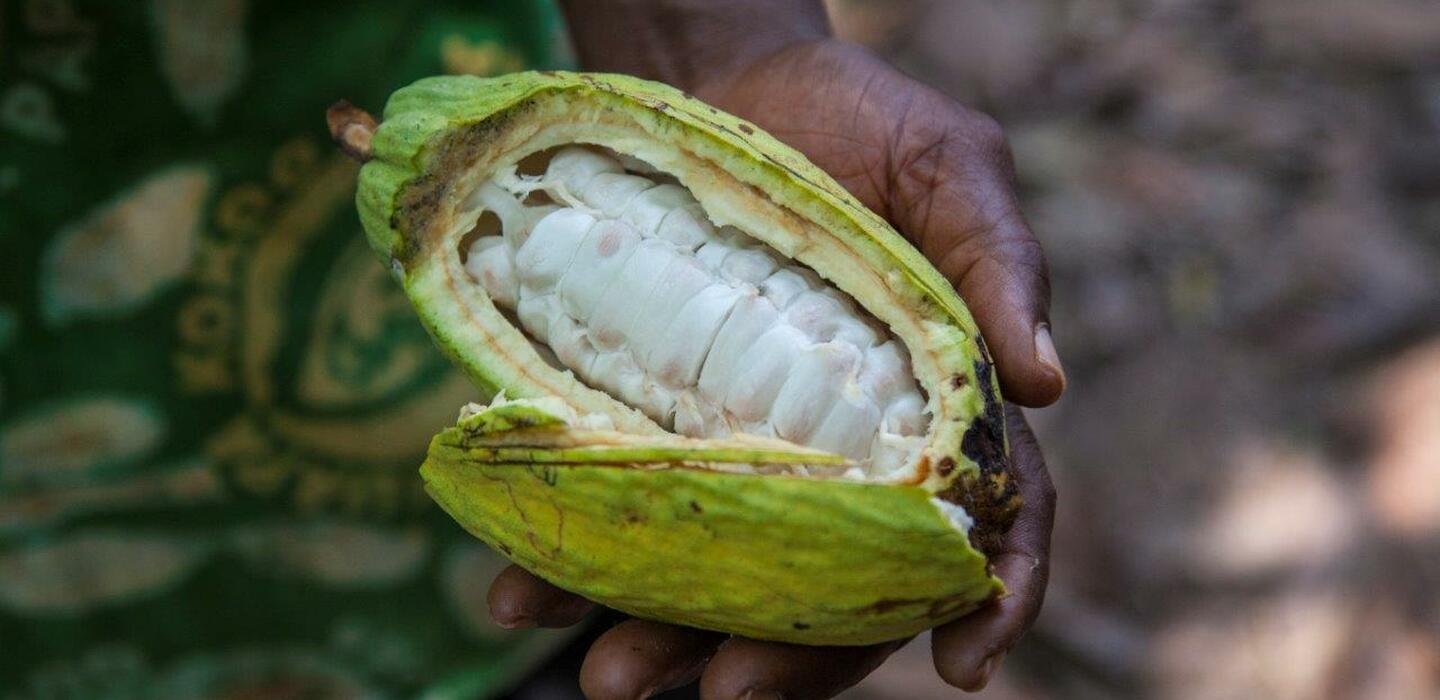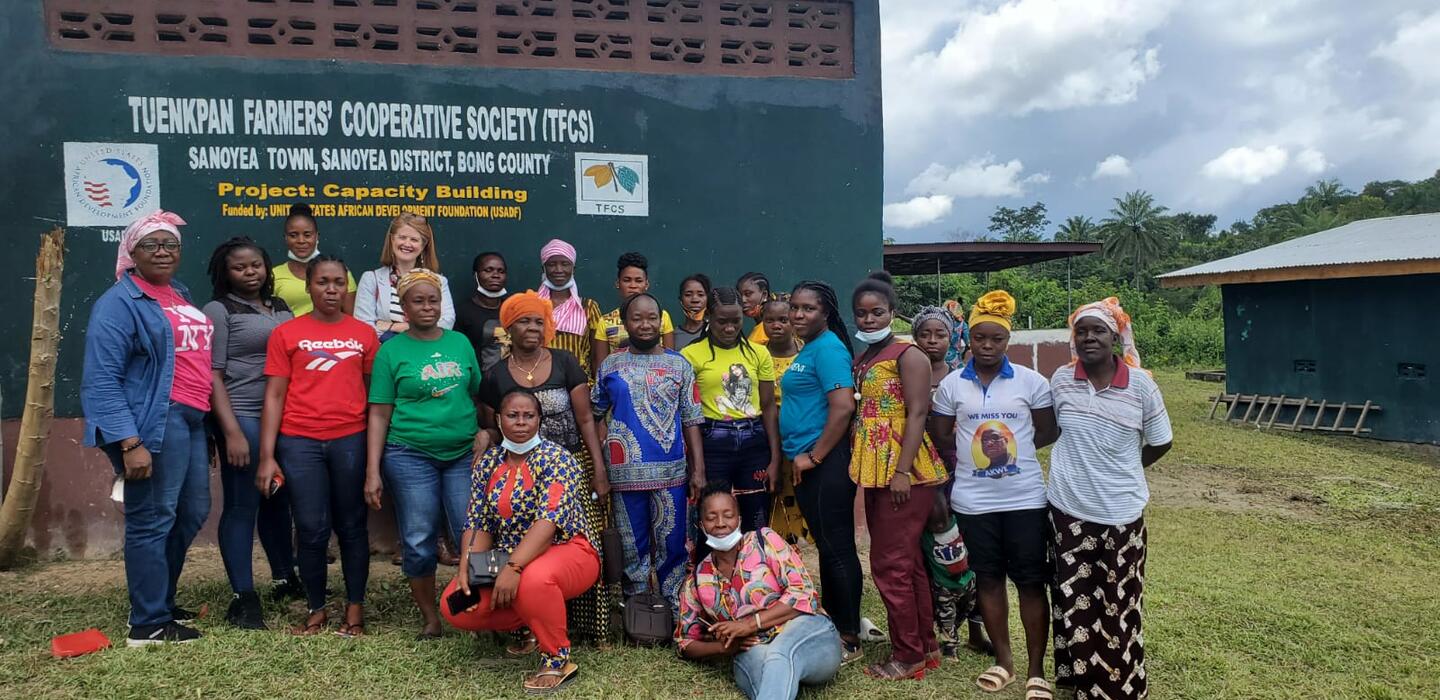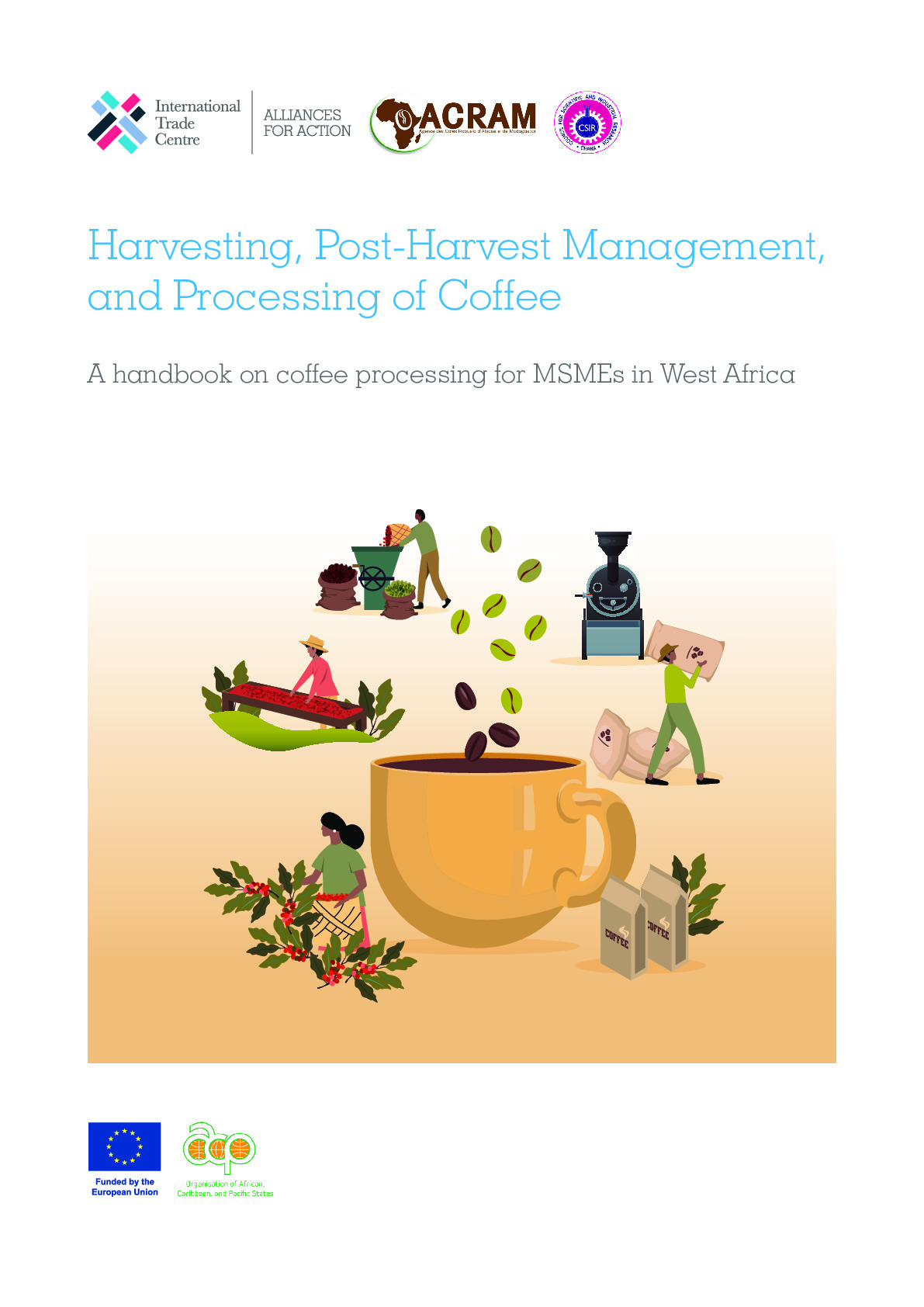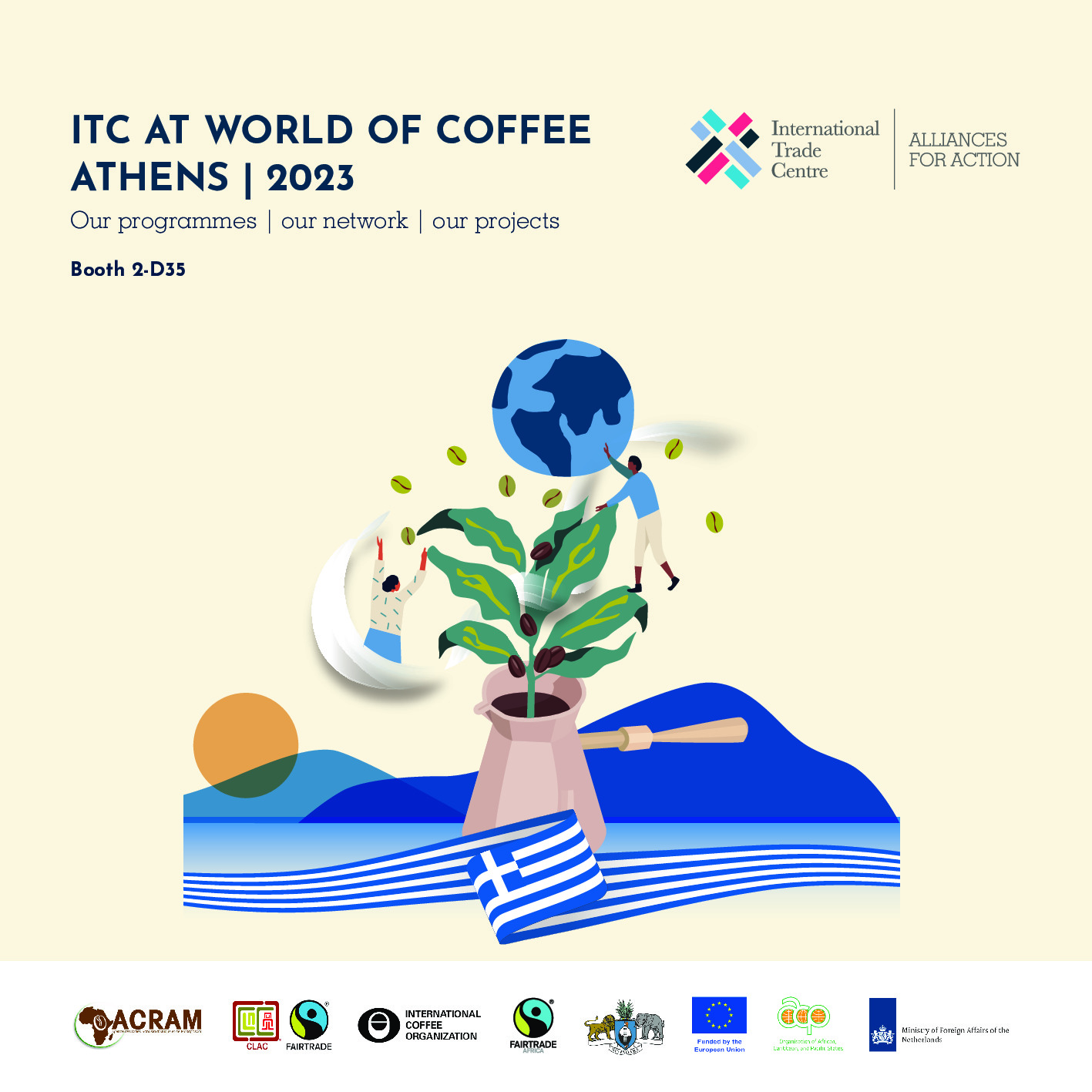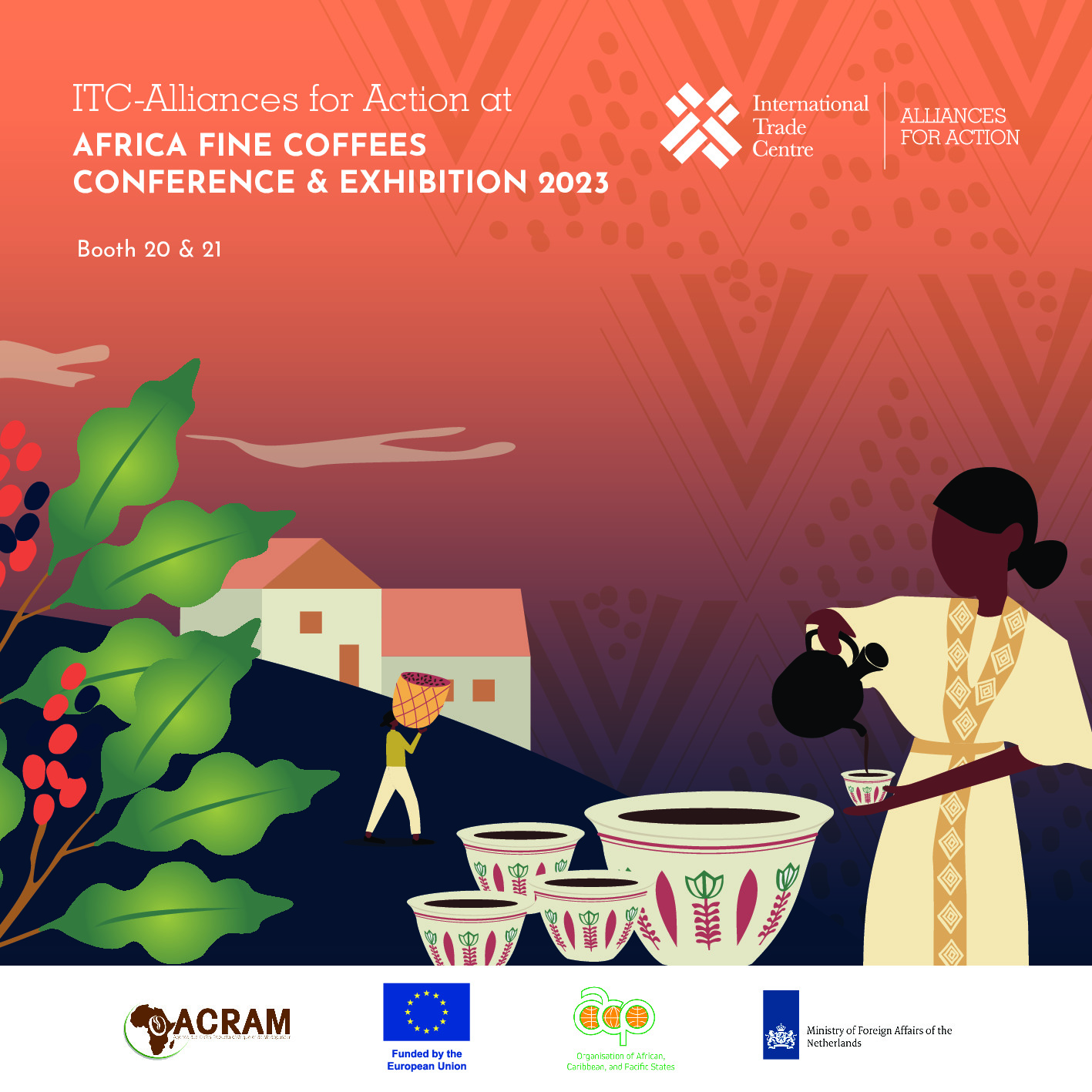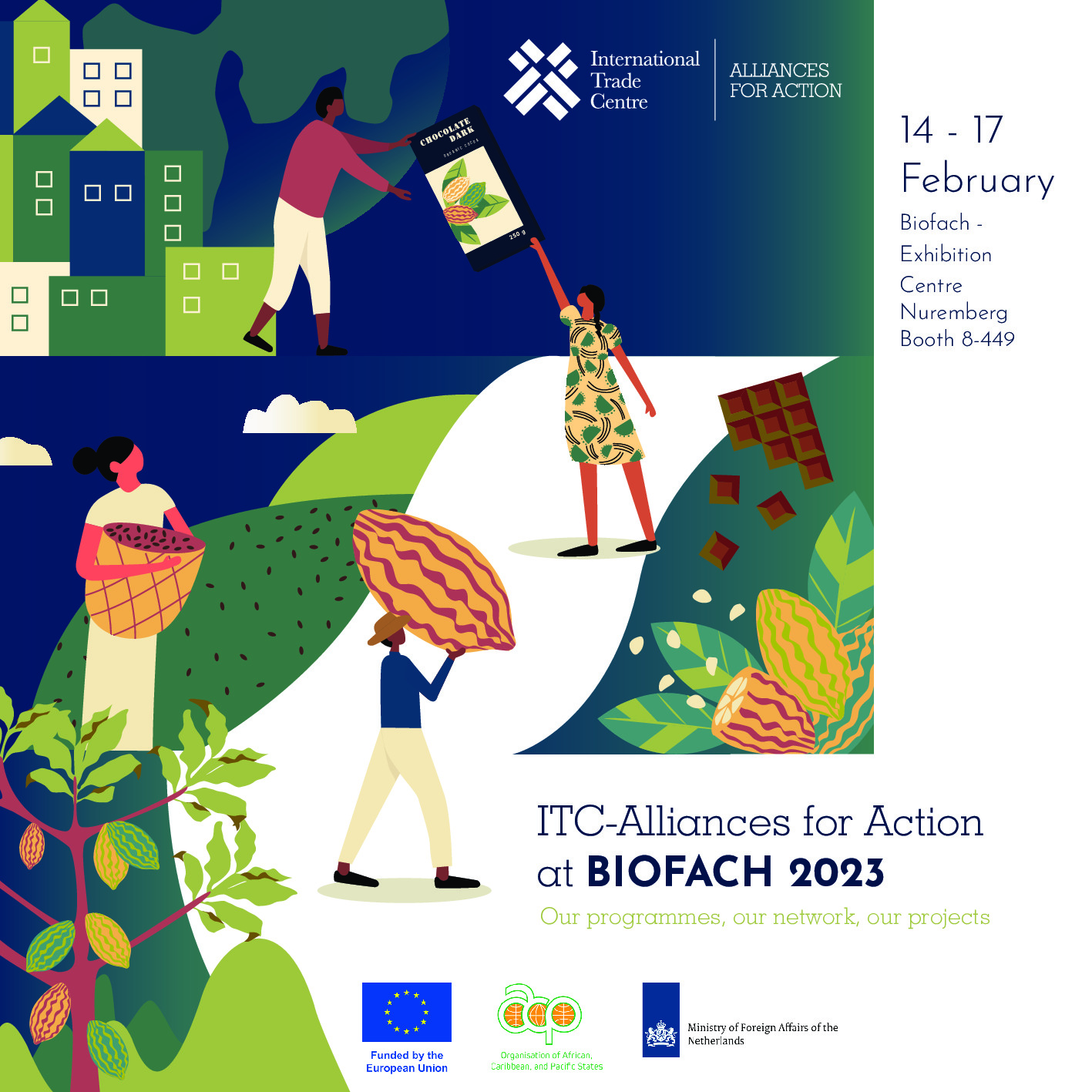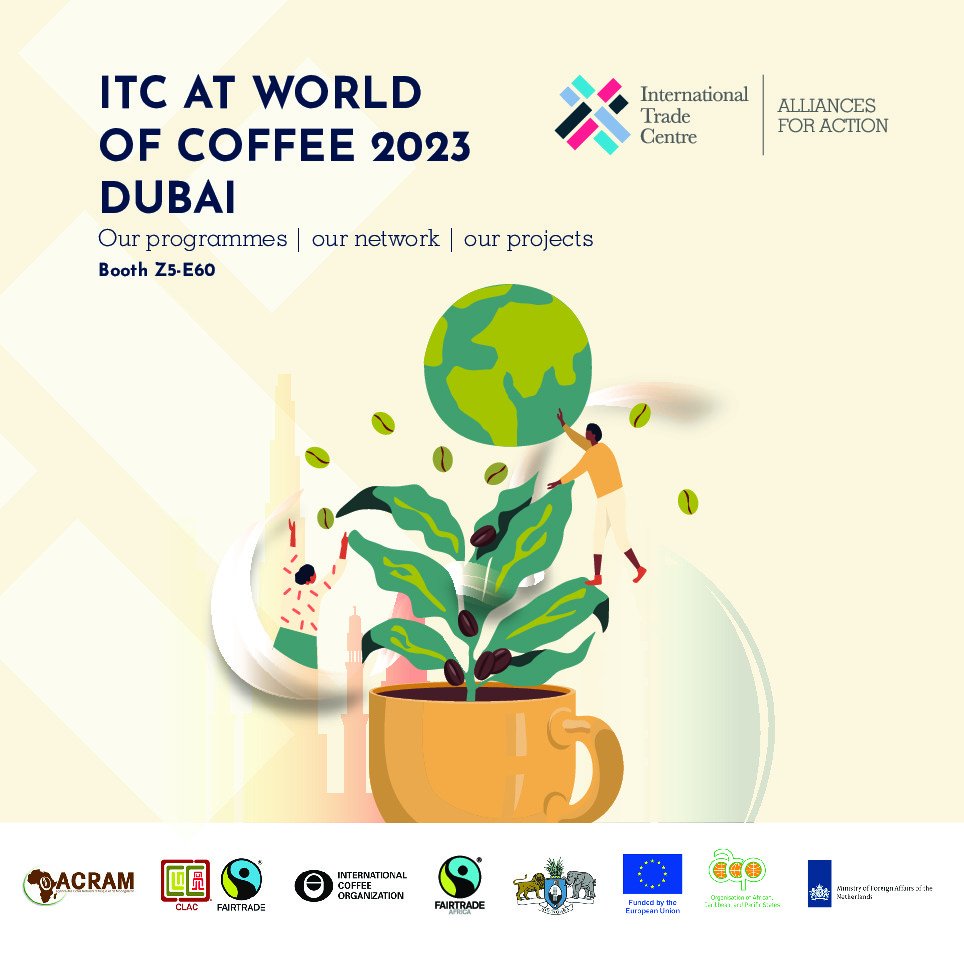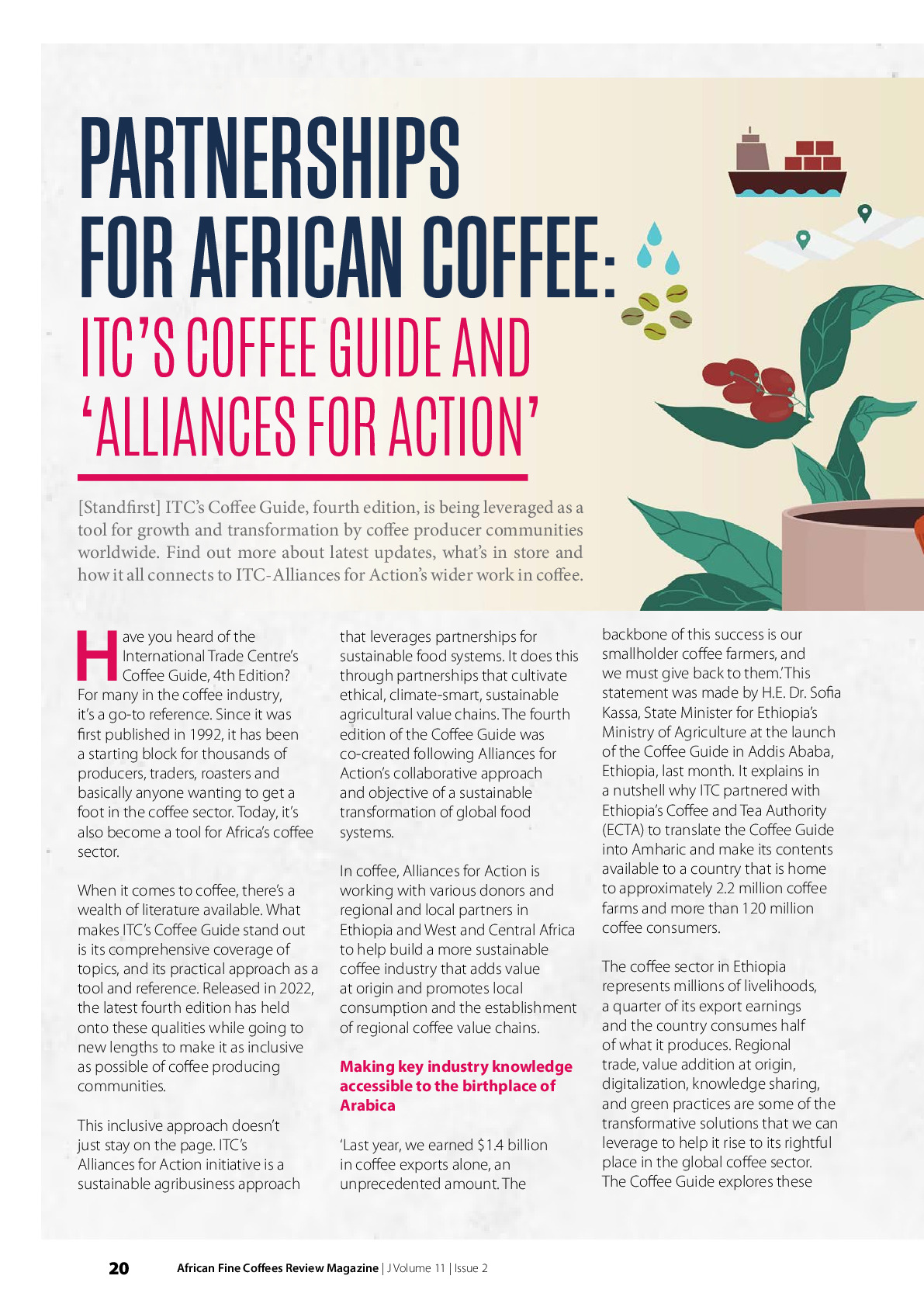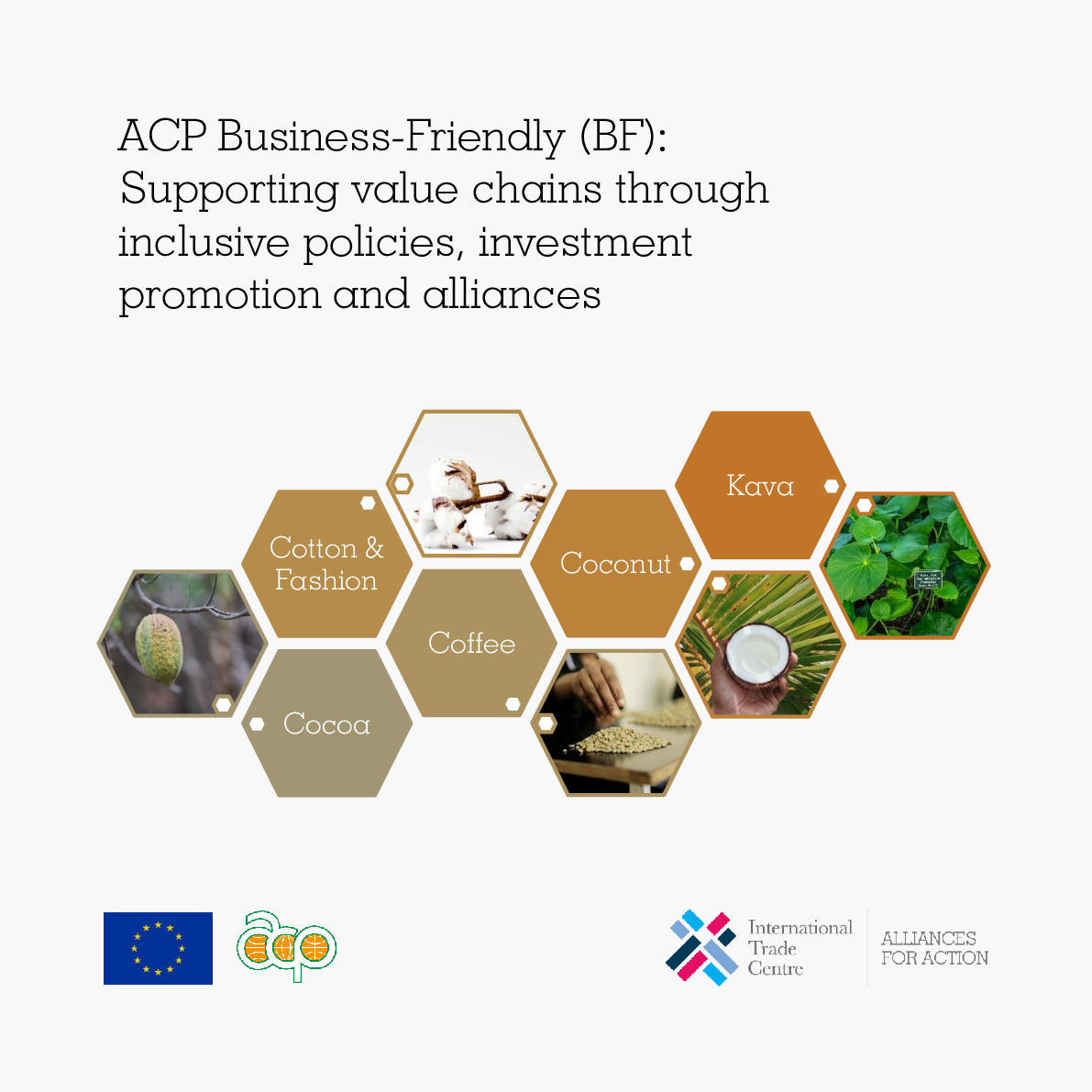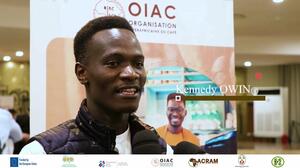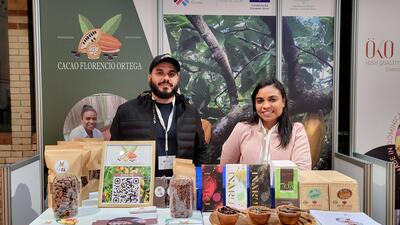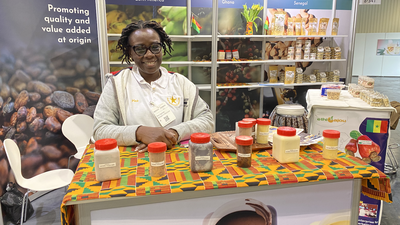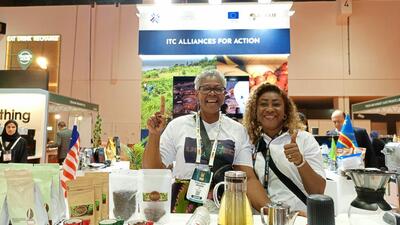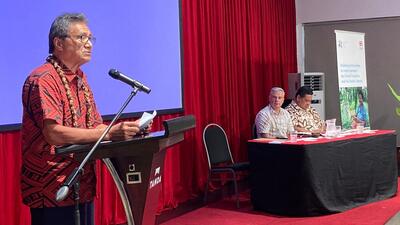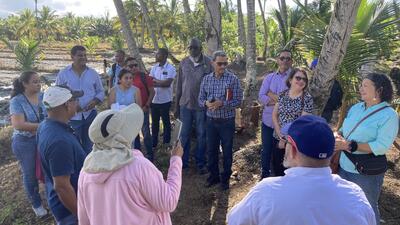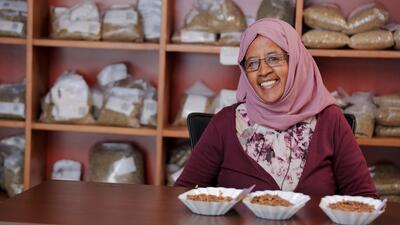
ACP Business-friendly: Supporting value chains through inclusive policies, investment promotion and alliances
Overview
Summary
In 2018, the ACP Secretariat, the EC, together with ITC, UNIDO and the World Bank finalized the Joint Proposal for a five-year Program (hereafter the ‘Program’) aiming at (1) adopting and implementing business-friendly and inclusive national policies and legal frameworks, and (2) strengthening productive, processing, promoting and marketing capabilities and value chains. The three agencies will respectively deliver micro-, meso-, and macro-level activities, and will ensure the appropriate level of coordination and synergies aiming to deliver integrated solutions to ACP countries.
The program includes country-level interventions, as well as Rapid Response and Regional Engagement windows for each of the three pillars. The Rapid Response window aims at swiftly responding to emerging beneficiary needs given emerging demands in the thematic areas of the Program; the Regional Engagement window will primarily aim to promote knowledge exchange, best practices and experience capture and sharing to contribute to two fundamental objectives.
Partners
Sustainable Development Goals
Putting the value back in African, Caribbean and Pacific countries value chains.
We at ITC know that smallholder farmers and small firms are the foundation of sustainable food systems in African, Caribbean and Pacific countries. Yet many lack the opportunities to diversify, add value and compete in domestic, regional and global markets.
Through our Alliances for Action approach, we are offering micro-level interventions through the ACP Business-Friendly Programme, promoting inclusive and sustainable agricultural value chains in areas such as coffee, cocoa, cotton, and kava.
Adding value to products and promoting local consumption can help create economies of scale and empower agribusiness communities, allowing farmers and their families to thrive.
Our project draws on a holistic approach, working both at the farm level and on building artisan skills like chocolate-making, coffee roasting and even barista techniques. Building up these sustainable production practices will help farmers absorb economic shocks as well as help attract investments.


















